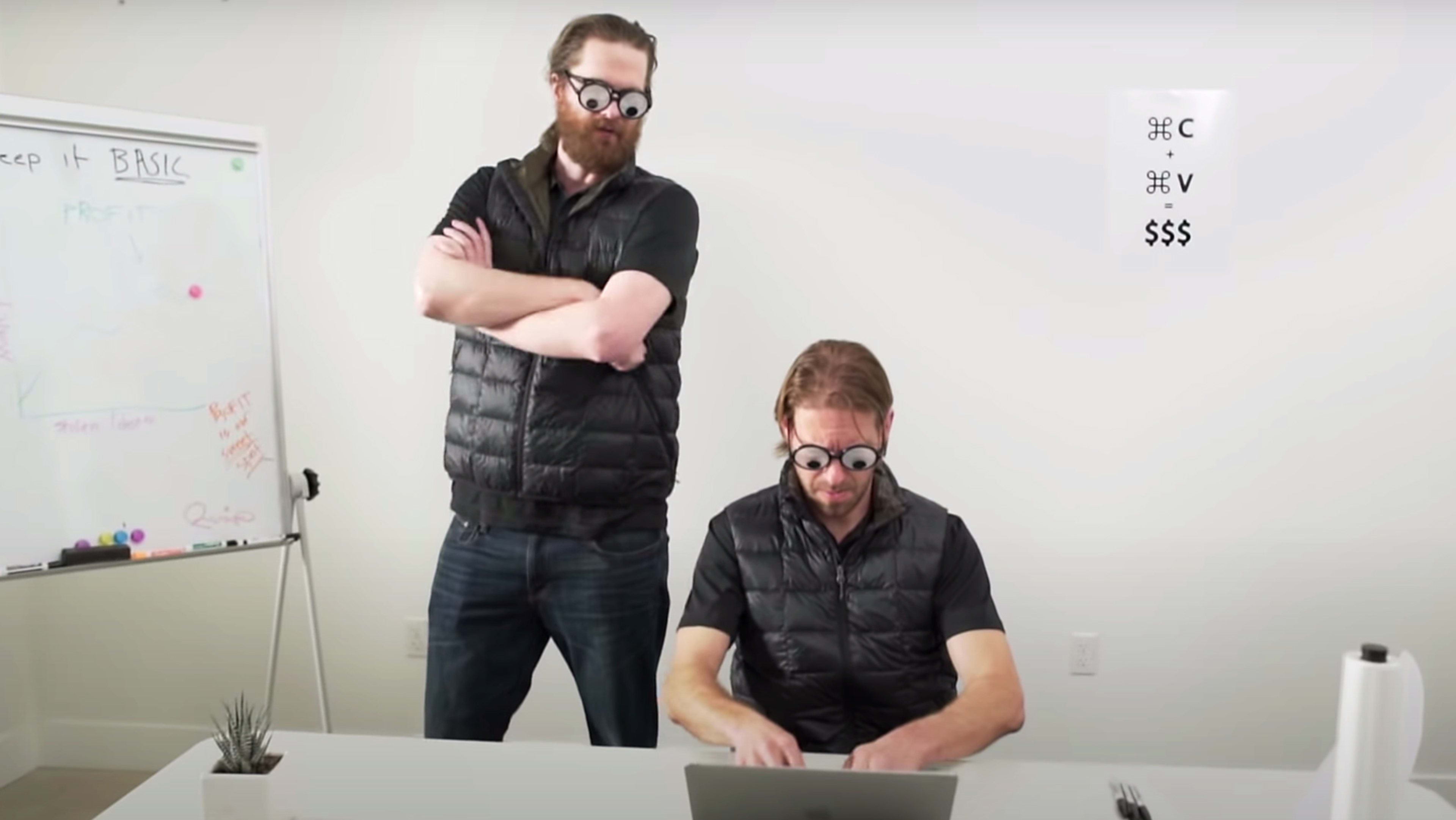For years, merchants on Amazon have accused the company of ripping off their ideas and selling much cheaper versions under the Amazon Basics brand, but no one’s made the case quite like Peak Design.
In a new YouTube video, the San Francisco-based bag designer points out the many similarities between its popular camera bag and Amazon’s, both of which are called the Everyday Sling. They have similar shapes, aesthetics, and pockets, and even their logos are in the same place. A key difference, though, is that Peak Design’s sling starts at $55, while Amazon’s version currently sells for $21.
The video then pretends to look in on the “crack team at the Amazon Basics department,” wearing googly-eye glasses and marveling at Peak Design’s sales before resolving to “Basic this bad boy.”
Amazon Basics straight up ripped off the @peakdesignltd Everyday Sling (they even stole the product name).
I know Basics does this all the time, but this is basically a carbon copy (minus quality). https://t.co/pGJmBZYn6C
— Justin Duino (@jaduino) March 3, 2021
Of course, the two bags are not exactly the same. In the video, Peak Design calls out the areas where Amazon’s version falls short—plastic buckles instead of aluminum, cheaper zippers, floppy dividers—while also pointing to its own bag’s recycled materials, lifetime warranty, carbon neutrality, and “fairly paid factory workers.”
“If you’re tired of supporting companies who innovate, and just not willing to pay for responsibly made products, don’t,” the video says, warning that “you’ll get exactly what you pay for.”
Peak Design is the latest in a long line of product makers who say Amazon has copied their products and undercut them on price. As Bloomberg reported in 2016, a company called Rain Design said sales of its popular laptop stand slipped after Amazon started selling a look-alike at about half the cost. In a 2019 interview with Fast Company, the shoe maker Allbirds accused Amazon of copying its Wool Runner shoe, but without the same sustainable design practices.
A Wall Street Journal report last year also documented how Amazon would use data from third-party vendors to track popular items and launch its own versions. Those included a car-trunk organizer similar to one sold by a small startup called Fortem, and an office chair seat cushion from a company called Upper Echelon Products. Amazon had previously told Congress that it didn’t track data from third-party sellers when deciding which products to make under the Amazon Basics brand.
Regulators have started to step in. Last November, the European Commission filed antitrust charges against Amazon, accusing it of using third-party seller data to give itself an unfair advantage in retail. In the United States, top Democratic lawmakers have accused Amazon of using its power to stifle competition, but regulators haven’t taken any action against the company. (By comparison, the Federal Trade Commission has called for a Facebook breakup, and the Justice Department has sued Google over its search business.)
For Peak Design, the video itself could end up being a savvy marketing move, though small companies probably shouldn’t have to put out witty videos playing the victim just to avoid having their businesses subsumed by a tech giant.
Amazon did not immediately respond to a request for comment.
Recognize your brand’s excellence by applying to this year’s Brands That Matter Awards before the early-rate deadline, May 3.
